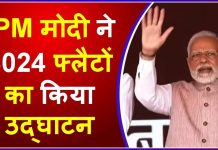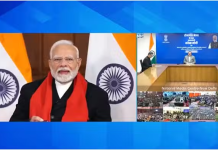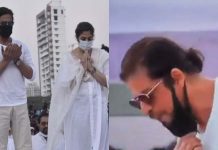The Supreme Court on Friday refused to interfere in the arrests of five activists in the Koregaon-Bhima case, saying it’s not a case of arrest for dissent.
There were two verdicts–one by CJI Dipak Misra and Justice AM Khanwilkar and the second by Justice DY Chandrachud.
The majority verdict written by Justice AM Khanwilkar said the accused couldn’t choose which agency would investigate them. It’s not a case of arrest for dissent, the majority said.
It’s not the stage to deal with evidence against the accused, the CJI and Justice Khanwilkar said.
The majority refused to deal with facts of the case and also took into account the fact that the accused had approached various courts.
They said the house arrest would continue for four weeks and the accused could seek appropriate remedies at proper judicial forums.
The Supreme Court delivered its verdict on a petition filed by five eminent intellectuals, including historian Romila Thapar, challenging the arrest of the five activists for their alleged Maoist links.
The three-judge Bench headed by Chief Justice Dipak Misra had reserved its verdict on the petition on September 20.
In a pan-India crackdown on August 28, poet Varavara Rao was arrested in Hyderabad, activists Vernon Gonsalves and Arun Ferreira in Mumbai, trade unionist and lawyer Sudha Bhardwaj in Faridabad and Chhattisgarh and civil liberties activist Gautam Navlakha in Delhi for suspected Maoist links.
The raids were part of a probe into a conclave—Elgar Parishad—held in Koregaon-Bhima near Pune on December 31, 2017 which had allegedly triggered violence the next day.
Maharashtra Police alleged that the arrested activists were planning to carry out violence in the country and ambush security forces and the raids were part of a probe into a conclave—Elgar Parishad—held in Bhima-Koregaon, near Pune, on December 31, 2017, which had allegedly triggered violence the next day.
The activists have been under house arrest for the last one month as ordered by the top court.














































